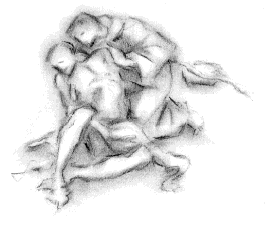What is Church?

The definition of “Church” found in Protestant Confessions, that it is the communion of saints where the Word is rightly taught and the sacraments rightly administered, grasps only two of the points. It overlooks the foundation, the communion of saints.
Soren Kierkegaard
Kierkegaard points out that our creeds focus on the practices of worship and vertical relationship that believers have with God, but misses all the horizontal elements of relationship: caring for the poor, practicing hospitality, loving one’s neighbor, and living in fellowship with one another. While our creeds have value in that they articulate foundational truths about God and how we relate to Him, they bypass the very thing that Jesus indicates is our source of validation before the watching world.
This is a subject close to my heart in these days because relational wounding, alienation, and betrayal is all around us, right in the midst of church life. There are so many stories, so many victims and victimizers (and incidentally, discerning victim from victimizer is usually impossible, and probably not our job). But all these stories of wounding have affected me. I'm increasingly convinced the REAL church is, as Jesus indicated, hidden as yeast, scattered throughout the institutions we call Christianity; small as a mustard seed - yet inexorably doing it's work to bring hope and healing to the world. So I'm not as impressed as I once was by churches of thousands - nor as disparaging. Their size is less relevant than ever. What IS relevant is whether I’m making room for the both the horizontal and vertical aspects of my faith. Loving God and loving people… easy to say…but sometimes its like moving mountains to do.


1 Comments:
Great thoughts RD. Interesting that the current communion of saints within a very physical Body of Christ is the ongoing resolution of both scripture and sacrament (two things we might too commonly take as end points in themselves). As the scripture compels us take our Form within His Body, the sacrament provides the Sustinence needed for our ongoing death and reformation.
And then, maybe, we realize this same bidding to reformation at a new level. As we comprise His new Body, is It not also bid to come and die... not just in flesh and blood, but in the realm of principalities? What happens to this new corporate body, the church, if not subject to confession and constant death to self, so that His life imbues? In pursuing our institution's death to itself, in Christ, it is resurrected as a Power of Love, as Him. In pursuing any other end, say strength and growth... dare we name the power we become?
Post a Comment
<< Home